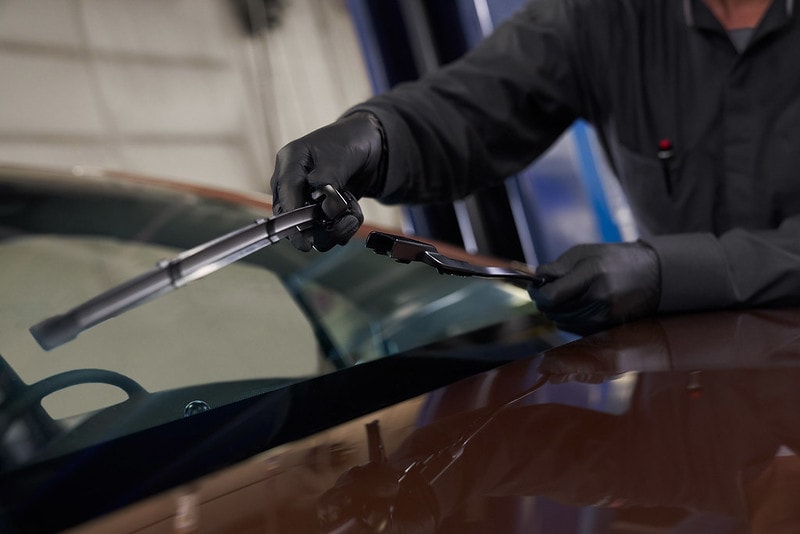

One of the most important types of maintenance that all vehicles need is fluid maintenance. All cars, even full electrics, use various types of fluids for different purposes, like coolant, brake fluid, and power steering fluid. Below, we'll go over all the major types of fluids, their purpose, and how to tell if your vehicle is due for a flush and refill.
Engine oil
The most important fluid in a combustion-powered car, engine oil helps reduce friction between the engine's moving parts (like the pistons), ensuring it doesn't overheat. It also keeps tiny particles out of the engine, carrying them to the oil filter where they can be removed by a technician. Over time, engine oil breaks down, and the build-up of particles can become harmful. At intervals that vary depending on the type of oil you use and the age of your vehicle, your Chevrolet needs regular engine oil changes. If you notice symptoms like poor fuel economy or reduced engine performance, those could also be signs your engine oil needs to be changed by Carr Chevrolet's service experts here in Beaverton, Oregon.
Brake fluid
Brake systems use hydraulic systems to convert the push of your foot on a pedal into immense braking forces. These systems rely on brake fluid to work, and while the fluid itself normally shouldn't break down, it can progressively become contaminated by water absorbed from the surrounding air. We won't bore you with the details, but over time, compromised brake fluid can lead to your brakes feeling mushy. If you feel like your brake pedal just doesn't work like it used to, it's probably time to get your brake lines checked by a professional.
Transmission fluid
Transmission fluid helps reduce friction in your transmission, which is made up of numerous moving parts. Typically, transmission fluid can be left alone for a long time. However, if you frequently haul heavy loads, tow trailers, or simply get stuck in a lot of stop-and-go traffic around the Portland area, this can generate excess heat that breaks down the fluid. You may need to change it at any time between 30,000-100,000 miles, which is quite a big range, so have a technician check the fluid at regular intervals to avoid any nasty surprises.
Coolant / antifreeze
Coolant circulates through your car's radiator, preventing the engine from both freezing and boiling, as well as preventing the engine oil from turning into a solid or a gas. It's very important, and usually needs to be changed every 2-3 years, or every 30,000 miles. As a rule of thumb, it's a good idea to check it every 15,000 miles - or immediately, if your car gives you a temperature alert.
Power steering fluid
Like brake systems, power steering systems often use hydraulic forces to make your actions feel effortless. If you've ever tried turning the wheel in a car that doesn't have power steering, you'll know it can take quite a lot of elbow grease. There's no set interval for changing power steering fluid, but over time, degrading parts can lead to leaks, which you'll notice first and foremost through noise. As hydraulic fluid gets low, power steering systems tend to make a very distinct whining noise when you steer. If you've heard this in your car, it's time to head to the shop!
Windshield washer fluid
This is an easy one. An indicator on your Chevrolet's dashboard should light up when your windshield washer fluid is low. Never drive without it - you never know when something could obscure the windshield that requires fluid to clear away. Windshield washer fluid is affordable and easy to replace, but we'll save you the trouble with a complementary top-up when you come in for routine maintenance at Carr Chevrolet.
For your next service checkup, schedule an appointment with our service center in Beaverton, Oregon!
Contact Us
* Indicates a required field
Sales Hours
- Monday 9:00 am - 8:00 pm
- Tuesday 9:00 am - 8:00 pm
- Wednesday 9:00 am - 8:00 pm
- Thursday 9:00 am - 8:00 pm
- Friday 9:00 am - 8:00 pm
- Saturday 9:00 am - 8:00 pm
- Sunday 10:00 am - 7:00 pm